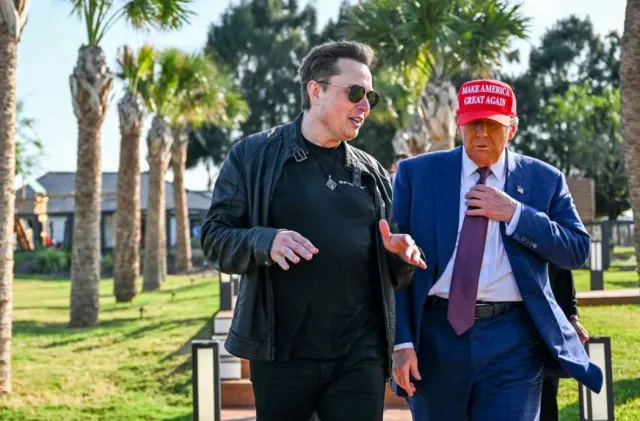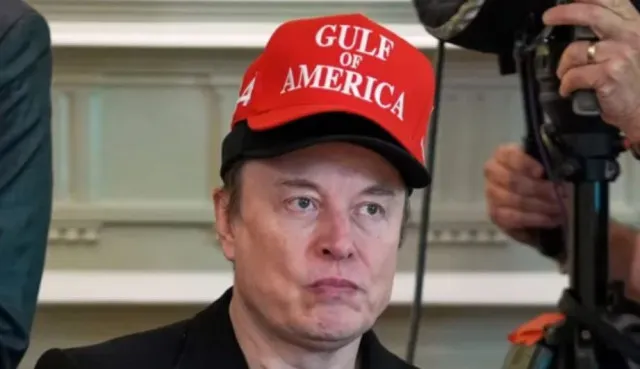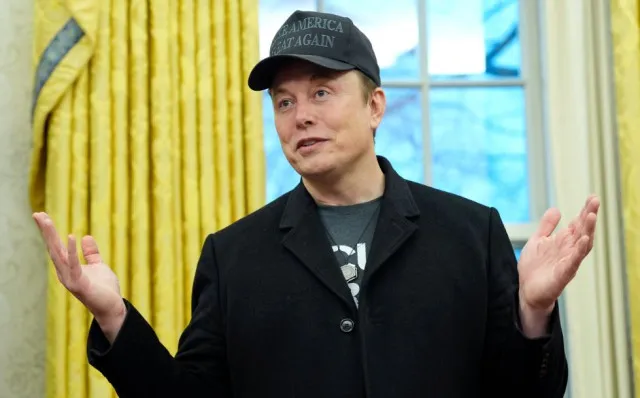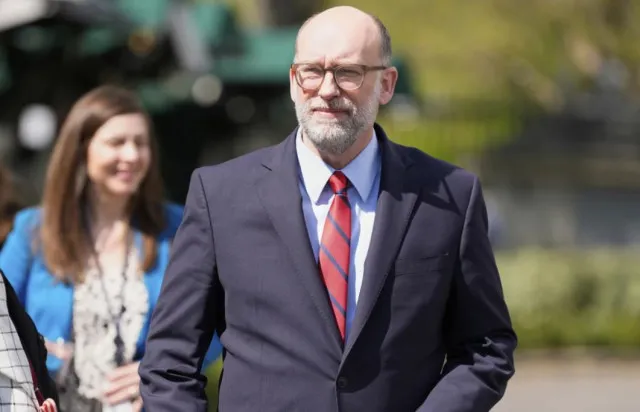Russell Vought is set to lead DOGE and continue Musk’s government-slashing agenda under Trump’s second-term framework.
Russell Vought to take over DOGE after Elon Musk steps down
A major leadership shift is underway at the Department of Government Efficiency (DOGE).
President Donald Trump’s top budget official, Russell Vought, is set to assume control once Elon Musk steps aside, according to the Wall Street Journal
Vought, currently serving as the director of the White House Office of Management and Budget (OMB).

He will be tasked with overseeing much of DOGE’s work, including collaborating with Congress on budget cuts.
Additionally, he will focus on reclassifying federal workers and advancing the proposed 2025 budget.
Vought’s role in slashing government spending and regulations
Vought has long been a key player in Trump’s efforts to reduce government spending and regulations.
He previously celebrated his department’s initiatives to slash government red tape.
He also noticed that Trump had vowed to cut 10 regulations for every new one introduced.

Vought’s appointment to DOGE is expected to intensify efforts to cut costs and streamline federal operations.
Democrats fear Vought’s plans for government cuts and Project 2025
Vought’s rise is drawing sharp criticism from Democrats.
They associate him with Project 2025, a hardline conservative manifesto.
The manifesto proposes sweeping reforms to Social Security, Medicare, and the federal bureaucracy.
Although Trump has publicly distanced himself from the document, Vought’s appointment is seen as a sign of deeper alignment with its vision.
This development has intensified partisan tensions over the proposed reforms.
Vought’s agenda after Elon Musk stepped down from his role

Vought has already worked behind the scenes with Musk on regulatory cuts.
Now, he is expected to expand that mission by pushing Trump’s $9.3 billion rescissions package. The package targets funding for the State Department, USAID, NPR, and PBS.
His takeover also includes advancing a 2025 budget that would slash nondefense discretionary spending by $163 billion.
Additionally, the budget allocates $120 billion through pending reconciliation bills.
The former budget chief is especially focused on cutting regulations, in line with a February executive order demanding agency heads revoke unlawful rules.
Vought will also revive and implement Schedule F, a controversial Trump-era executive order.
This order strips job protections from senior federal employees, and it was blocked by Biden but is now reinstated.
Vought’s fiscal priorities are also creating rifts among Republicans, particularly over military funding.

He wants any increases in defense spending to occur only through budget reconciliation, rather than annual appropriations.
This would keep the defense budget flat in standard proposals.
His stance has put him at odds with Defense Secretary Pete Hegseth.
Hegseth reportedly assured GOP lawmakers that military spending would grow.
Now, Republican senators are angry over the discrepancy and blame Vought for misleading them.
“Russ has a lot of sway as the OMB director. He’s got a very sharp pencil,” said Sen. Kevin Cramer, a Republican from North Dakota said.
Vought’s agenda aims to dismantle traditional budget parity
A central point of conflict is Vought’s rejection of parity. the idea that increases in defense spending should be matched by increases in domestic spending.
Instead, he favors separating military funding from the standard budget entirely.
While, critics argue this tactic could leave the U.S. military underfunded in future years.
Sen. Roger Wicker, a Republican from Mississippi and chair of the Senate Armed Services Committee, expressed concern about the OMB proposal.
He argued that the proposal is inadequate.
A Pentagon spokesperson confirmed that the White House’s proposed budget includes military increases.
However, they refused to clarify whether Hegseth considered the proposal sufficient.